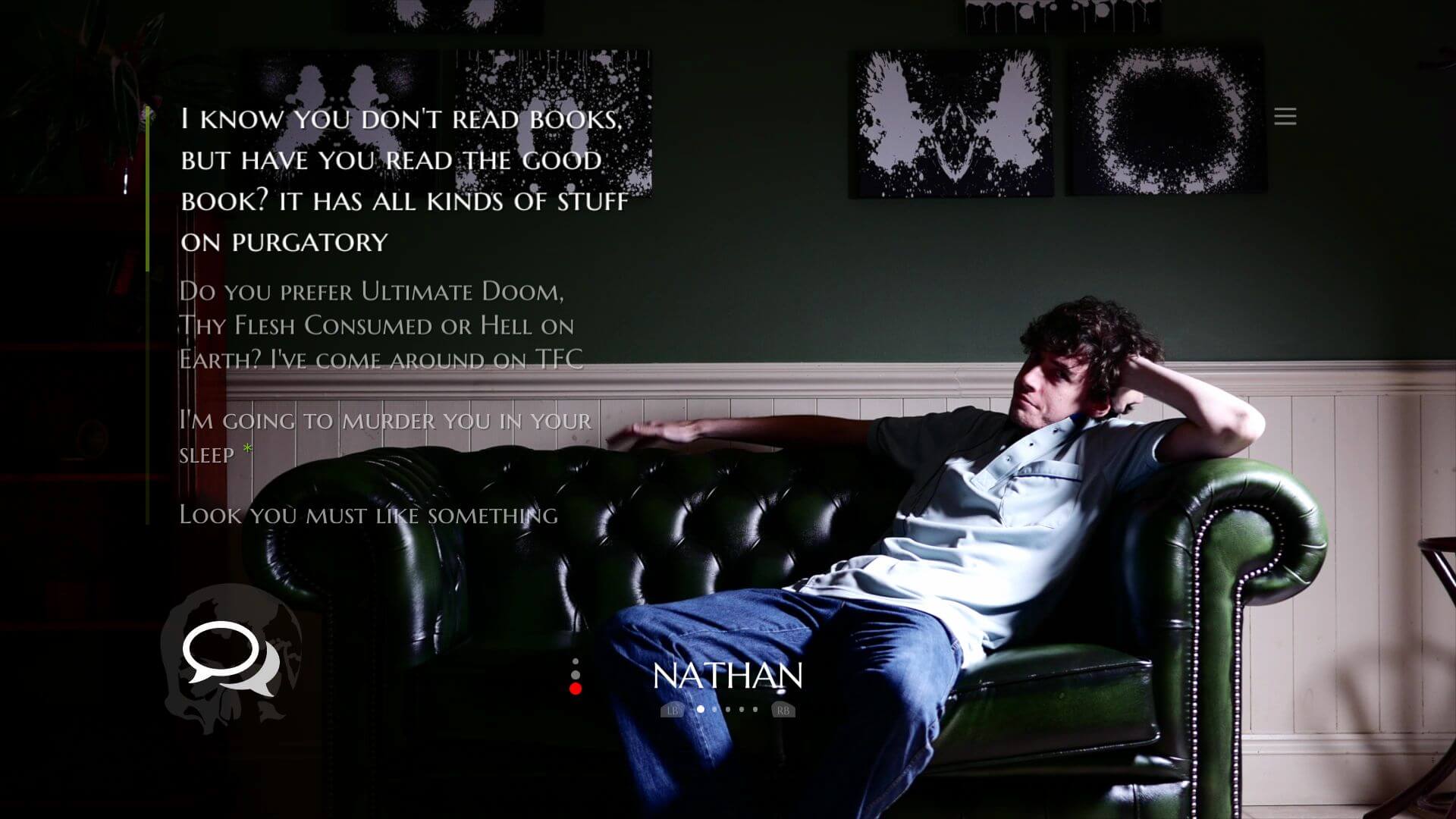Most games have ends that tie up the narrative, but recently I’ve found myself playing adventure games and other mystery-style games, due to the finality of the narrative and the slight obfuscation of the objective. While the puzzles are often on rails, the solution as a realisation is the core of why I play these games.
The Infectious Madness of Doctor Dekker exists in a similar hole, not so much due to misreading actors, but due to the optional nature of certain side discussions. Whole chains of conversation, which may or may not lead back into a reveal of sorts, can in cases be initiated due to guesswork.
Due to the nature of the game, the players’ objectives and the lack of an explicit reward system, the only effect this has is that you miss some character development or backstory reveals — in a game full of both things. It feels less like failure and more like additional content. Doctor Dekker does in fact score you based on certain interactions, which result in a varied-severity endings. In addition to that, it runs a Cluedo-style (Clue, for Americans) shuffled reveal, which in turn removes and adds additional dialogue choices.
You can read our review of The Infectious Madness of Doctor Dekker here.
Late Shift is an interesting game that plays like a live-action, choose-your-own adventure. As such, it manages to succeed where certain games have failed — choices divulge from other paths, a second playthrough can result in different content, reliant upon you not managing to get the perfect ending on the first playthrough.
This can lead to situations where, after two playthroughs, you sit someone else down to tackle the game, hoping for them to diverge wildly… but they proceed to hit every single plot point and answer the same as you did. At this point, intentionally pitching the opposite idea, making it less of a solo decision and more of a group debate, can really change up the game.

It’s a really interesting thing, which was apparently originally played in theatres with remotes on each seat — something I’ve always found fascinating since hearing about and watching ‘choose your own select a vision’.
It’s a tangent, but I think at this point in time we are aware of what is and isn’t possible as a way of storytelling. It’s no longer a question that a narrative can be told in multiple media platforms, whether an Alternate Reality Game for a television show or a weird internet adventure — which is why I’m going to drop a link here.
I read The Future Shock at least eleven years ago and have recommended it to multiple people over that time, but it’s a hard sell, not due to its format, but its content. How do you make people read a thing if you won’t tell them what it’s about or why it is relevant to the conversation. I can only recommend you read it, then, and that you suspend some disbelief — something we routinely do with narrative.
The piece is written as a diary/correspondence in a manner common to non-fiction. The thing is, it is his diary of events over two years. What Kolin Pope talks about actually happened to him. It might seem outlandish and fictional, because in some sense it is, yet what is fictional is not his experience, but what he was told.
To say he was lied to is both an incorrect reading of the situation and the factual truth. This is not an uncommon thing; certain games have twists where either perspective changes, or the narrative shifts in a manner that causes the initial understanding of events to be a false narrative. In some cases people get upset about reveals; in others the developers and publishers intentionally release press images featuring characters in places inaccessible to the player.

Narrative twists are hard to discuss without directly spoiling a game — often the mention of spoilers is enough for some people to immediately bail — but for every Metal Gear, Spec Ops: The Line, Silent Hill and Deadly Premonition, there is a game that doesn’t diverge from standard story techniques. In all these games, the twist can be explicitly foreshadowed or just plainly stated further down the line.
The big twists of Metal Gear one and two are stated as fact when it comes to Metal Gear Solid, but that doesn’t mean there isn’t story to glean. Deadly Premonition and Mass Effect both do a ridiculous thing where they do a jump cut very early on in the game. If accelerated frame by frame, they showcase either the ending of the game or, in the case of Deadly Premonition, the entire game. These aren’t obvious until both have been completed, and don’t actually spoil the narratives, but act more like impending doom and/or a weird slideshow.
How do you recommend something for its twist without ending up in an Undertale situation, wherein the majority of the internet knows about the plot and the twist, causing the majority of new players to essentially skip an entire narrative streak. I think the best bet in these cases is something along the lines of:
‘You should play Thimbleweed Park.’ ‘You might enjoy Nier Automata and its multi-part story.’ Both games have exaggerated twists that I greatly enjoyed and aren’t so much not worth spoiling, as worth experiencing as a whole with the entire narrative. This isn’t to say avoid spoilers like the plague, but rather find the story your own way, whether that is from devouring a wiki or not.
Comments are closed.